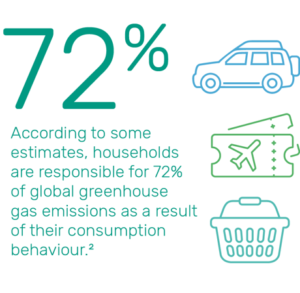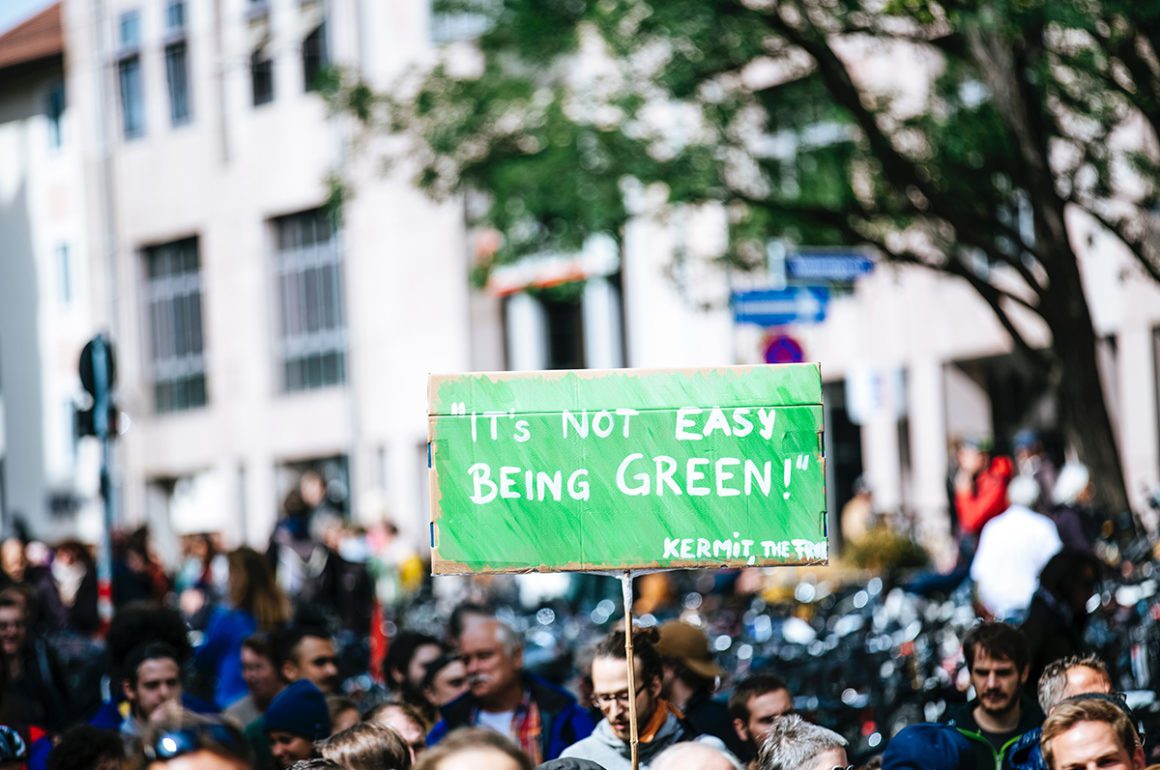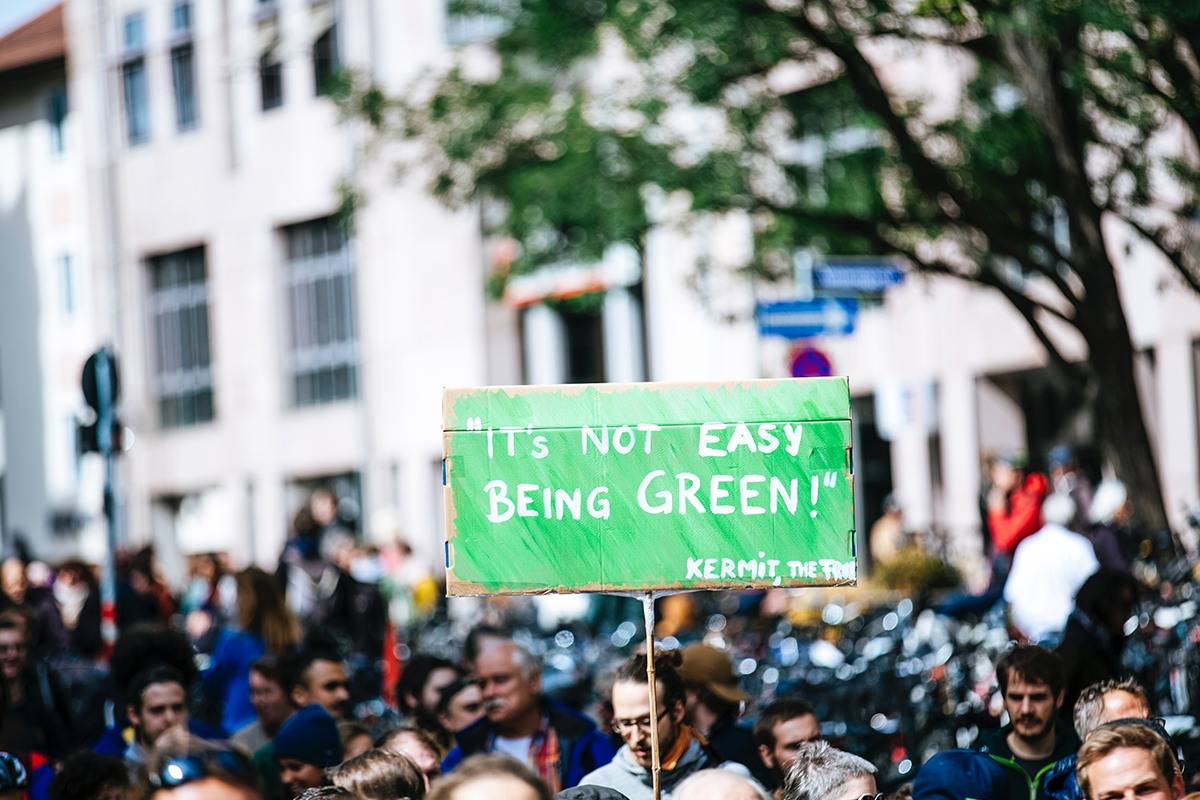Professor Peter Newell made waves earlier this year with a report describing how the wealthy have a disproportionate impact on climate change – and a particular duty to change their habits. The lead author of the Cambridge Sustainability Commission report on Scaling Behaviour Change speaks to Candice Tucker about the power of protest, how duty increases with wealth, and the need for radical action

Professor Peter Newell
LUX: What is the single most effective non-philanthropic act ultra-high net worth individuals can do to help combat climate change?
Peter Newell: There are many things ultra-high net worth individuals can do to combat climate change. These range from, firstly, reducing emissions associated with their lifestyles, from flying less, avoiding unnecessary travel and changing the way they travel (switching to electric cars, for example) to owning fewer and smaller homes; secondly, withdrawing investments in the fossil fuel economy and investing in low carbon alternatives and thirdly, using their political influence (through access to politicians and donations to political parties) to push for more ambitious climate change.
Follow LUX on Instagram: luxthemagazine
LUX: To encourage a shift towards a low-carbon economy, should charitable institutions including museums and universities reject donations from companies with poor environmental profiles?
Peter Newell: Yes, companies driving the climate crisis are increasingly losing their social license to operate and so museums, arts institutions and universities refusing to give them a platform or association with which to push their products or enhance their brands is an important contribution.
LUX: How effective are protests demanding action on climate change (such as the FridaysForFuture strikes) in instigating meaningful change?
Peter Newell: Incredibly effective. If we look to the past, few big and progressive shifts in society have come about without social protests and struggle. The battle to address the climate crisis is no different. Without the school strikes, governments, cities and some corporations would not have declared a climate emergency. Protests always force the issue and offer a gauge of how a society feels because they will only be successful if enough people support them directly and indirectly.
LUX: What will it take to reach a political tipping point, where climate change becomes the top priority for politicians globally?
Peter Newell: Climate change impacts everything and increasingly, people are understanding that more and more. It is a health issue, a security issue, an economic issue as well as a human rights and environmental issue. The more people connect their wellbeing and quality of life to climate, the higher up the agenda it goes. Ask people in the midst of forest fires, droughts and record temperatures if they are worried about climate change. For change at the speed and scale now required, we need lots of things to come together at the same: shifts in technology, behaviour, the falling costs of renewables and political shifts including greater representation for younger people and excluded groups. Luckily, some of these things are happening now.

The highest consuming and wealthiest groups in society need to radically address their lifestyle habits, says Peter Newell
LUX: Can global governments be persuaded to put climate issues above fractious relationships?
Peter Newell: No one country is immune from the effects of climate change. So, on the one hand everyone has an interest in addressing it. On the other, countries would rather someone else moves first and powerful interests resist more ambitious action. As noted above, climate is also a security and trade issue, a welfare and work issue, a health and human rights issue and governments do pay more attention to those issues. Governments have worked together to address Covid, the key now is to address the causes of threats like that in the destruction of the natural world. Now is a marginally better time for multilateral solutions than a few years ago.
LUX: What can be done to encourage governments to campaign on low carbon policies which may only lead to a benefit long after they have left office?
Peter Newell: There are near-term benefits from low carbon policies in terms of lower fuel bills, jobs, energy security, health and many other things. These bring benefits to consumers, businesses and of course governments themselves in terms of lower health costs, energy independence and a resilient economy. These are the things governments need to emphasise to bring people with them. Some benefits will come after they have left office. That is a good legacy to leave!
Read more: Spanish architect Santiago Calatrava on light and space
LUX: Having worked with the governments of the UK, Sweden and Finland as well as NGOs including Friends of the Earth and Climate Network Europe, how would you contrast their approach to mitigating the effects climate change?
Peter Newell: For more than 25 years, I have worked with most actors in the climate space from governments, local councils, businesses, NGOs and cities. They all have different approaches to reducing emissions and enhancing their resilience to the effects of climate change. This is unsurprising given the different mandates and resources they have and the diverse constituencies they have to respond to. Right now, we need action from all of these actors. Each has a vital role to play in accelerating and deepening change.
LUX: What aspects of international governmental cooperation have surprised you in protecting the environment?
Peter Newell: International cooperation of the environment is generally very slow as countries seek to manage different interests and priorities and agree on the details of negotiating a legal text. It is often a very frustrating process, but occasionally you get significant outcomes such as when governments rapidly phased out ozone-depleting CFCs as part of the Montreal Protocol in 1987, or when the Paris Agreement on climate change in 2015 set an ambitious target of keeping warming below 1.5 degrees compared to pre-industrial levels.
LUX: How can governments be incentivised to prioritise a low-carbon economy when it may be detrimental to their medium term economic interests?
Peter Newell: Any policy pathway creates costs for some and opportunities for others. With climate change though, we will also lose everything unless we respond in a way that corresponds to the scale of the threat. That also means we have everything to gain. In the short term, we need a just transition to manage and reduce disruption and negative impacts on those sectors that inevitably need to be wound down, while shifting resources and support to sectors and industries whose future is compatible with addressing the climate crisis.
LUX: Will the pandemic effect governments’ approach to climate policies moving forward?
Peter Newell: The pandemic has had a detrimental impact on government finances, so one level this is an even more challenging time to address the climate crisis. On the other hand, the pandemic has shown how quickly governments can mobilise finance, repurpose industries and shift behaviours. These are all things we need to do to tackle climate change. There is also a chance to re-set the economy: how we travel, shop, source our food and how we work. There are opportunities to radically decarbonise all of these areas if governments are bold enough to rise to the challenge. It really is the case that we can build better – and in any case going back to business as usual is not an option because it was leading us towards a climate disaster.

Source: Hertwich & Peters 2009
LUX: How much of the problem is a lack of education in combatting climate change?
Peter Newell: The question of education is often raised in the context of educating younger generations or those with less scientific literacy about the dangers of climate change. In reality, younger people and poorer people often understand only too well the threats associated with climate change and feel a sense of injustice that they are not the ones who caused the problem yet live with its worse effects. So, it is actually richer and more privileged the people the world over that need to re-educate themselves in the need for radical action to address climate change.
LUX: Can changes made by individual citizens, such as eating less meat, have a genuine impact on climate change?
Peter Newell: There is no question that we cannot reach ambitious climate goals without behaviour change. This needs to be led by the highest consuming and richest groups in society and it also needs to address key behaviour “hotspots” around unnecessary travel, diet and housing, for example. But, we also need to think about behaviour change more broadly, beyond what individuals and households do: to consider what we do at work, in our communities and in public life where we often have more ability to shape things in a positive direction.
LUX: Are there reasonable grounds to hope we will avoid the worst-case scenarios caused by climate change?
Peter Newell: At the Rapid Transition Alliance, we talk about “evidence-based hope.” This showcases change taking place around the world today in relation to energy, transport, housing, finance and many other areas, as well as shows how we have met some of these challenges before. This shows how we can meet this challenge. But as well as tapping into all the opportunities I have described here, we need to make tough choices like urgently leaving large swathes of fossil fuels in the ground and standing up to vested interests. We need to make the right choices and the difficult decisions for all our sakes. This will only come from pressure and action on all fronts and on a scale that we have not yet seen, but things are happening, so I remain optimistic.
Peter Newell is a Professor of International Relations at the University of Sussex and a key member of the Rapid Transition Alliance, which supports research and campaigning to tackle the climate emergency. Find out more: rapidtransition.org








Recent Comments